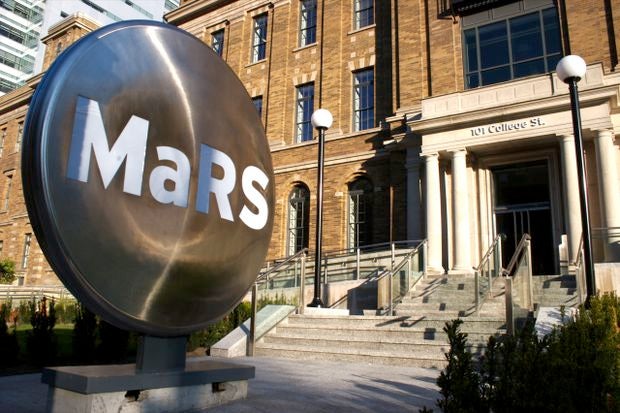
“We have many of the pieces needed to become a leading player in autonomous vehicle technology, and ultimately – speaking kind of selfishly – for our area to really benefit from it in terms of a better quality of life,” said Oshoma Momoh, chief technical advisor at Toronto’s MaRS Discovery District.
Canada is not like California or Arizona, where fleets of highly automated vehicles are seen testing on public streets year-round. Autonomous vehicles on our roads will have to deal with the worst weather and the slipperiest conditions.
Autonomous and connected car development is happening on public and private fronts in Ontario, all at once. Major automakers already established in the province are looking for new business and investment opportunities here. General Motors opened a lab at Communitech, a startup incubator in Waterloo, as well as a technical centre in Markham to focus on software development.
Infiniti, Nissan’s luxury brand, has hosted the second Infiniti Lab Toronto, a competitive six-week accelerator program for startups. The most promising new companies could attract investment and support from the Renault-Nissan-Mitsubishi Alliance’s US$1-billion venture capital fund.
The provincial government’s Autonomous Vehicle Innovation Network (AVIN) is creating six regional technology development sites to foster smaller companies in the autonomous car space and connect them to major automotive and tech industry players.
The MaRS Discovery District in Toronto will focus on artificial intelligence for autonomous vehicles, the Durham site on human-machine interface and user experience, Hamilton on multi-modal and integrated mobility, Ottawa on networks and communication, London/Windsor on cybersecurity and cross-border tech and Waterloo on high-definition mapping and localization. Each site is already partnered with local universities and will receive in-kind support from industry.
“The idea being,” Momoh said, “that as a company working on autonomous vehicles, you can engage with any one of these regional technology development sites. It makes it easier to test your ideas, get feedback and hopefully build partnerships that help you go to market.”
He described the sites as something similar to a co-working space with expertise, advice, specialized shared hardware, opportunity for networking and collaboration, and a direct link to automakers and industry suppliers.
“Imagine you have cars – self-driving or partially self-driving – going around on test tracks or city streets. There’s lots of sensor data coming in from many cameras [and] lidars,” Momoh explained. “We think there’s a need to have a shared data set, to collect the sub-set of data that everyone’s comfortable sharing with each other, and make it available to all the players.”